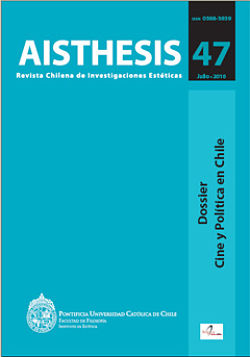AIDS in Latin-American Literature: Discursive Practices and Imaginaries of Identity
Main Article Content
Abstract
The present article proposes a revision of AIDS imaginary –understanding the disease as a discursive practice– in three Latin-American works of literature: Salón de belleza, by Mario Bellatín, Loco afán, by Pedro Lemebel, and Fernando Vallejo’s El desbarrancadero, looking into the implications of working discursively with the topic of a disease of high social sensibility. Bringing the imaginary of aids to the public sphere leads to a refl ection about boundaries, norms and power, linking these issues with sexuality and desire. Diverse and complex lines of discourses converge in the place created by literary works, turning AIDS into a mobile platform that allows for a transfer between theoretical, autobiographical and aesthetic thinking, stating the disease as a foundation of an aesthetic and subversive identity project.
Article Details

This work is licensed under a Creative Commons Attribution-NonCommercial-ShareAlike 4.0 International License.
All contents of this electronic edition are distributed under the Creative Commons license of "Attribución-shareAlike 4.0 Internacional" (CC-BY-SA). Any total or partial reproduction of the material must mention its origin.
The rights of academic works published in this publication belong to their authors., who grant to AISTHESIS: Revista Chilena de Investigaciones Estéticas the license for its use. The management of the permits and the authorization of the publication of the images (or of any material) that contains copyright and its consequent rights of reproduction in this publication is the sole responsibility of the authors of the articles
